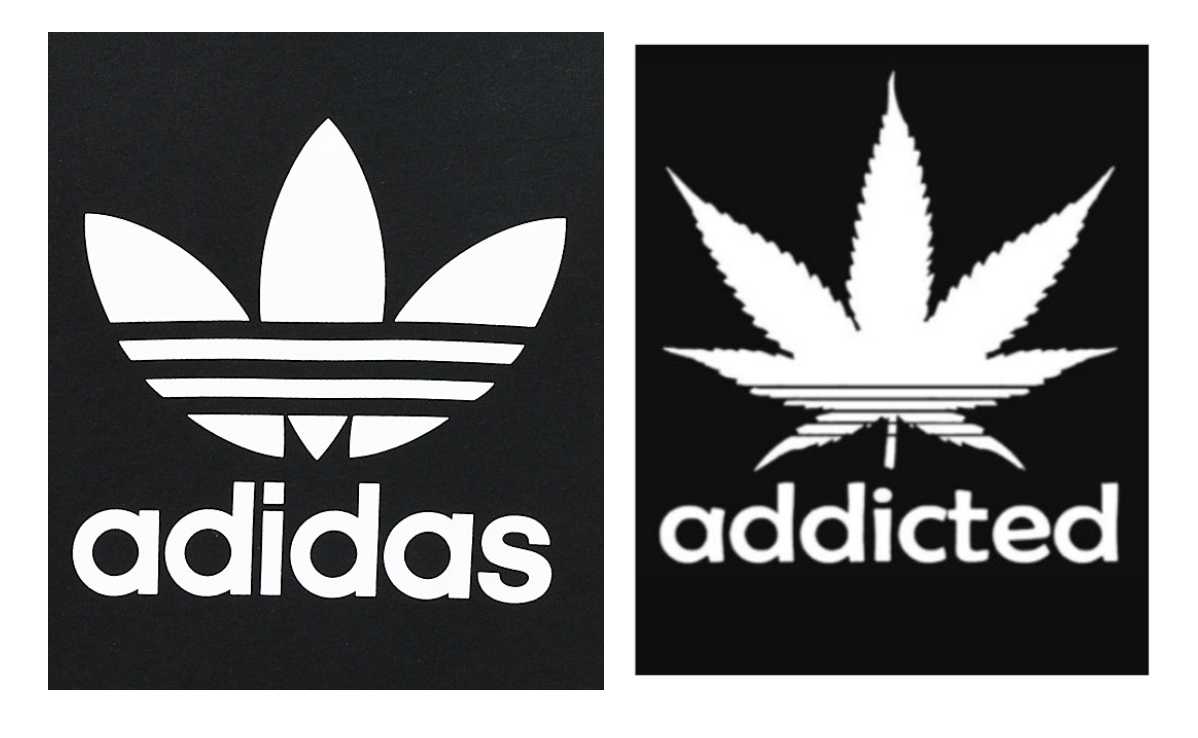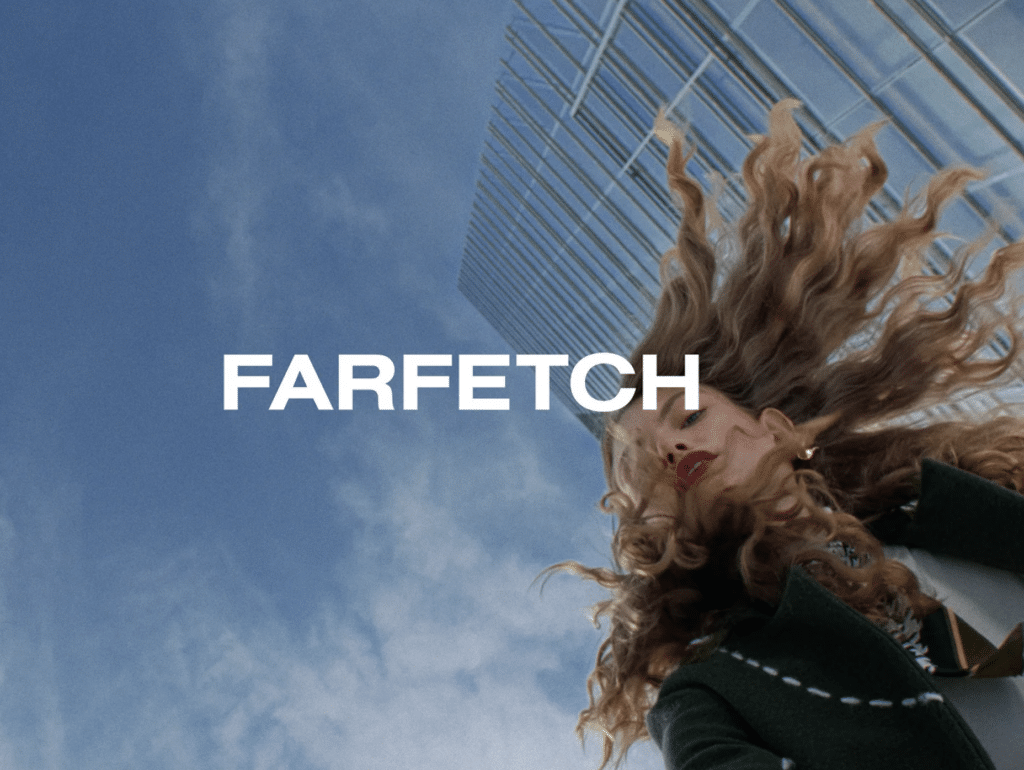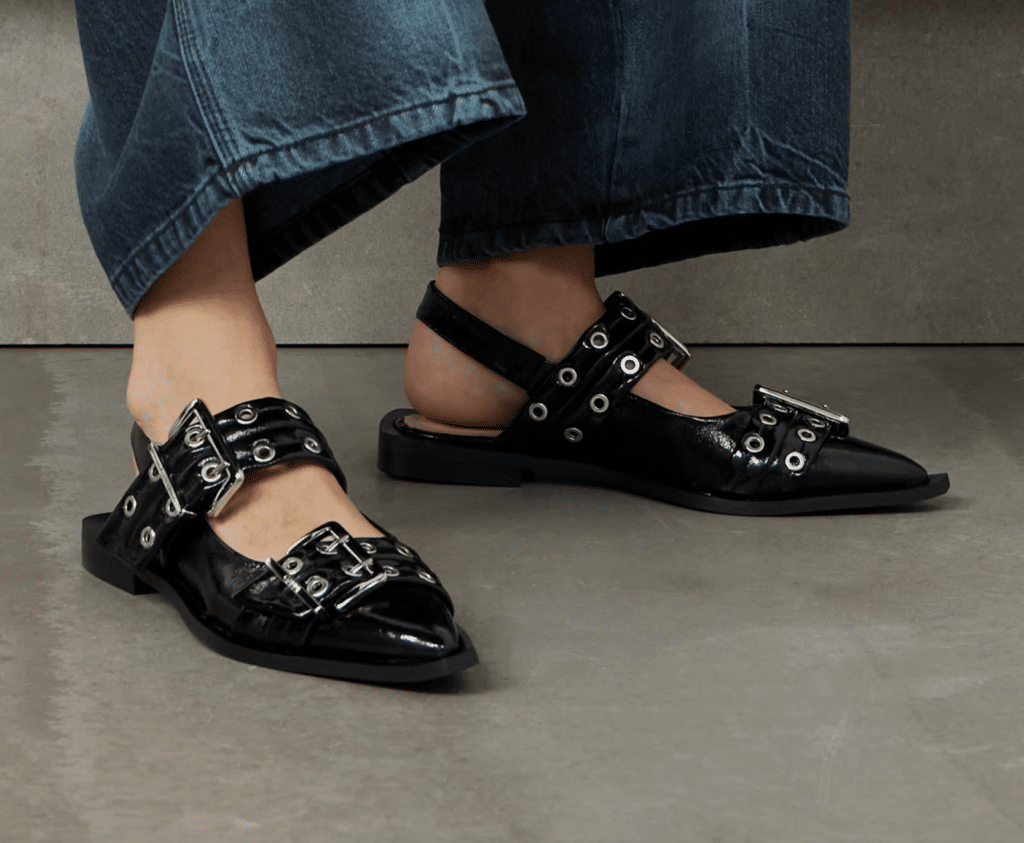Taking a short break from its ongoing stripes-based legal efforts (and a recent loss before the EUIPO), adidas has succeeded in getting the United Kingdom’s Intellectual Property Office (“UKIPO”) to strike down an already-registered trademark, claiming that the mark looks a bit too much like its famous Trefoil mark. In a decision on Tuesday, the UKIPO handed Manchester-based brand Addicted Original Ltd a loss by invalidating its trademark, one that “depicts a leaf of the marijuana plant and the word ‘addicted.’”
Addicted Original Ltd’s mark may have been registered by the UKIPO back in August 2017 for use on apparel for adults and children, including “Clothing for sports,” and retail services “connected with clothing,” among other things, thereby giving the company the exclusive right to use the mark and prevent others from using it (or a confusingly similar mark) on those goods or related goods, but the UKIPO has since changed its mind.
As previously reported by WIPR, the national trademark body’s decision to cancel Addicted Original’s mark comes after adidas filed a formal request for invalidation in September 2019, pointing to its Trefoil logo, which it “has used throughout the UK since the 1950s,” and asserting that there is a likelihood of confusion between its mark and Addicted Original’s mark “because the [parties’] respective goods are identical or similar and the marks are similar.”
The German sportswear giant argued that while its mark has a well-established reputation and has gained a substantial goodwill in the UK as a result of decades of use, the use and registration of Addicted Original’s lookalike mark sends the wrong message. To be exact, adidas claims the Addicted Original’s copycat mark “takes unfair advantage of, or [is] detrimental to, the distinctive character and/or repute of [adidas’ famous marks] … without due cause.”
 adidas’ Trefoil logo (left) & Addicted Original’s logo (right)
adidas’ Trefoil logo (left) & Addicted Original’s logo (right)
Addicted Original’s “will have been aware of [adidas’] earlier mark,” adidas claimed in its invalidation filing, alleging that Addicted Original “has clearly based the design of their mark on [adidas’] mark … with the clear intention of mimicking [adidas’] mark, all while calling to mind and glorifying illegal drug taking and addiction,” the latter of which it says is “contrary to public policy on drug use and against accepted principles of morality.”
With that in mind, adidas urged the UKIPO to invalidate Addicted Original’s registration, and the UKIPO agreed, but not without a hitch.
The court – noting the strength of adidas’ mark in the UK, based at least in part on the brand selling more than 400 million pairs of “adidas Originals” sneakers in 2016, alone, and spending nearly $5 million to advertise its “Originals” collections that year – determined that consumers are not likely to be confused between the two brands’ marks.
The UKIPO’s Hearing Office Ms. S. Wilson stated, “I do not consider that the average consumer will mistakenly recall one mark for the other. I consider that the average consumer will recognize the difference between the made-up word in the [adidas’] mark and the ordinary dictionary word in [Addicted Original’s] mark.” Wilson notes that “it is likely that the [Addicted Original’s] mark will call to mind [adidas’] mark,” but “mere association,” she says, is not the same as “confusion.”
Wilson further stated that given the visual differences that exist between the two brands’ marks, “I can see no reason why the average consumer would assume that they originated from the same or economically linked undertakings.” In other words: consumers would not likely confuse trademark-bearing products of the two brands.
While the UKIPO refused to side with adidas on likelihood of confusion grounds, it did hand the brand a win in considering the “Detriment to Repute” and unfair advantage that may result from Addicted Original’s use of a similar mark on the same types of goods as adidas. Wilson asserted that not all consumers would “recognize the device [in Addicted Original’s logo] as a marijuana leaf.” However, she stated that there will be “a significant section of relevant consumers who do … particularly when the image is used in combination with the word ‘addicted.’” That is “sufficient” for a finding that Addicted Original’s use of its own mark would “cause detriment to the repute of [adidas’] mark,” she stated.
Still yet, Wilson found that “the fact that [Addicted Original] has chosen to base its mark upon, or parody, [adidas’] mark is sufficient to result in the advantage gained being regarded as unfair.” And with that in mind, she determined that adidas’ application for invalidity “succeeds in its entirety and [Addicted Original’s’ mark is hereby declared invalid in respect of all goods and services for which it is registered.”
In terms of a discussion of the potential parody elements of Addict Original’s mark,it was limited. The UKIPO stated that “for consumers who do recognise the device to be a marijuana leaf, the link will be made in the sense of the proprietor’s mark parodying the applicant’s mark with reference to an illegal drug,” but did not go further than that. As our friends over at IPKat noted recently in connection with a couple of Games of Thrones-related decisions, “The concept of parody is probably [best] known by way of its application in copyright law, but there is also a parody exception for trade marks under UK law (see the UK decision Toys ‘R’ Us (2003)).











